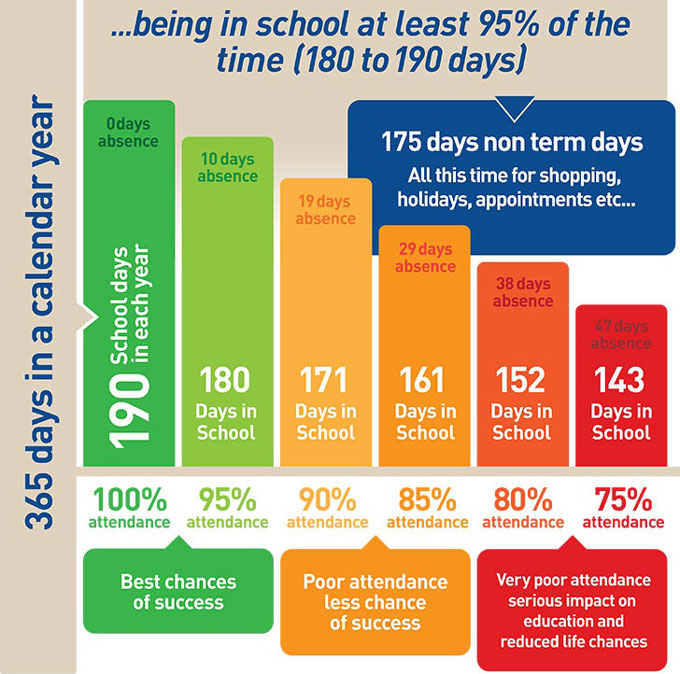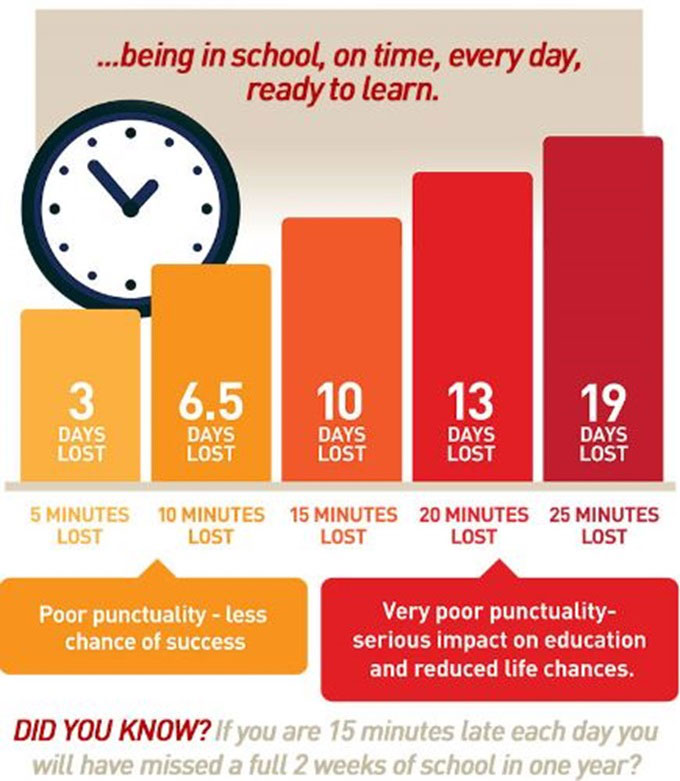How can I help my child?
- Let your child know that you think school is important.
- Make sure your child goes to school regularly and on time.
- Take an interest in your child's school work.
- Provide regular times and a quiet, clean area for doing home learning.
- Set a regular bedtime schedule. Age should not be a factor.
- Provide your child with plenty of time to get ready for school.
- If your child starts to miss school, speak to the school and let your child know they must attend.
- Have regular communication with the school.
- If your child is ill, contact the school and explain the reason for the absence.
- Don't expect your older children to stay home and act as babysitters for younger children.
- Set good examples and enforce rules.
- Include regular exercise and a balanced diet in your child's daily activities.
- Post the school calendar and notes on the refrigerator, or another prominent location.
- Balance time with extracurricular activities.
- Keep open communication lines with your child.




 Rivacre Valley Primary School
Rivacre Valley Primary School